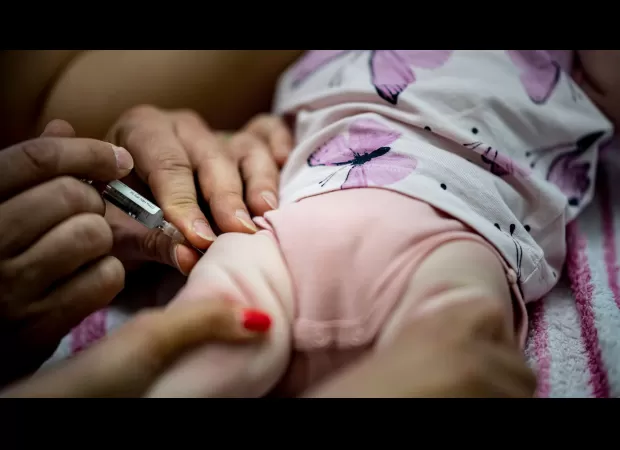Recent rise in whooping cough cases results in three infant fatalities.
Vaccine vital for pregnant women to shield infants from severe illness.

Health officials are urging pregnant individuals to get vaccinated against whooping cough, as three more babies have tragically died from the disease. Pertussis, also known as whooping cough, can be fatal for infants who are too young to receive the vaccine. This means that at least eight babies have lost their lives to this illness since the beginning of this year.
According to the latest figures released by the UK Health Security Agency, there have been 4,793 confirmed cases of whooping cough between January and April. This is a significant increase from the previous year, as there were only 858 cases in all of 2023. The disease, named for the distinctive "whoop" sound that children make when coughing, is less common in adults but can still cause serious complications.
The vaccine not only protects the individual receiving it, but also their unborn baby. This is because the antibodies from the vaccine are shared between the parent and child. While adults may only experience whooping cough as a persistent cough, young children can suffer from seizures, pneumonia, and even stop breathing. The initial symptoms may seem like a common cold, but after about a week, the coughing becomes more severe and can last for several minutes. Unfortunately, once a person shows symptoms, they are contagious.
Whooping cough is caused by a bacteria called Bordetella pertussis and tends to peak every three to five years. The last peak was in 2016, with a major outbreak occurring in 2012. Health officials believe that the current increase in cases is due to the easing of lockdown measures, which has allowed for more contact between people. However, this also means that people have less immunity to the infection.
Vaccine uptake has been declining for several years, with only 59.5% of pregnant women receiving the whooping cough vaccine last year. This is one of the lowest levels since 2016. When a pregnant woman receives the vaccine, the antibodies are passed on to their unborn baby. The NHS also offers four more doses of the vaccine for the baby after they are born.
Dr. Gayatri Amirthalingam, a consultant epidemiologist at the UKHSA, warns of the dire consequences of not getting the vaccine. She emphasizes the importance of pregnant individuals getting vaccinated in every pregnancy, usually around the time of their mid-pregnancy scan. This will provide protection to the baby in the womb and for the first few months of their life when they are most vulnerable.
Professor Sir Stephen Powis, NHS England's national medical director, also stresses the importance of getting vaccinated, as the number of whooping cough cases continues to rise. He urges families to take advantage of easily accessible vaccination services and to get their children vaccinated after birth as part of the routine NHS vaccine offer. If anyone experiences symptoms of whooping cough, they should seek urgent medical attention from their GP or call NHS 111 for assistance.


